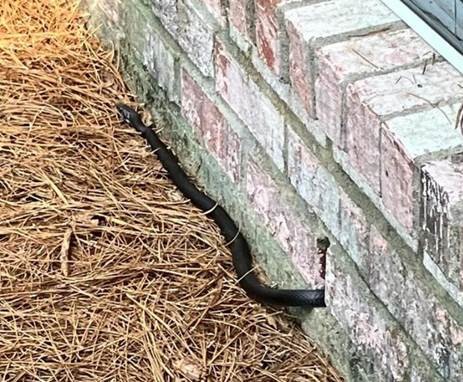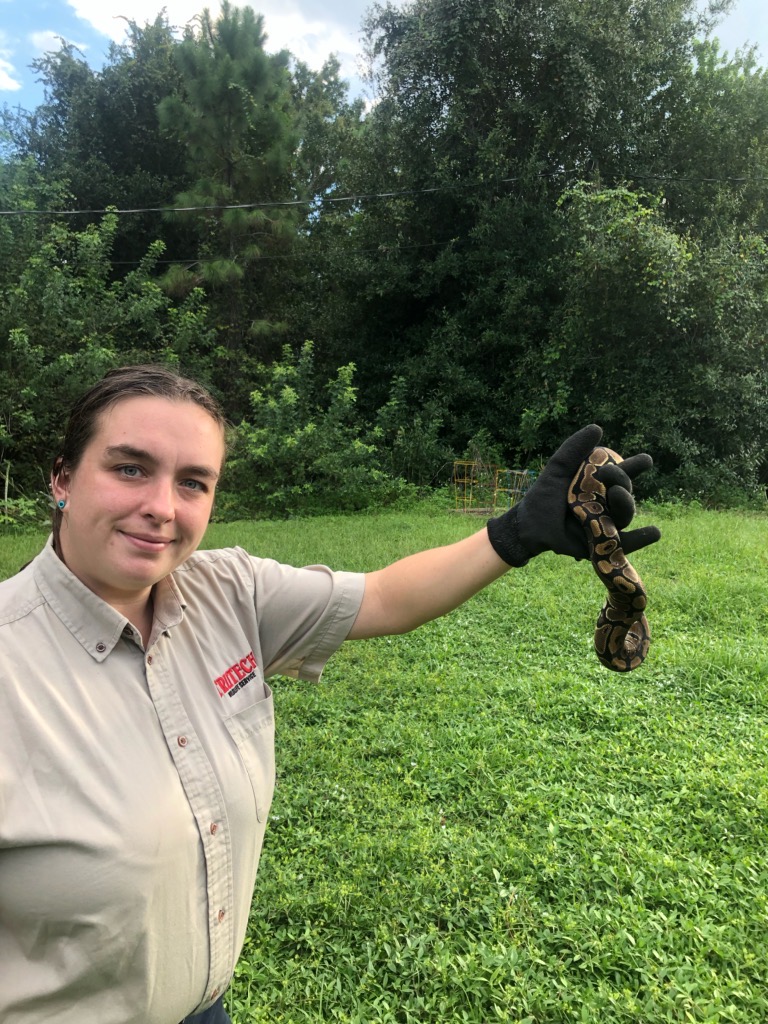Although most homeowners would probably agree a garage is no place for snakes, the snakes don’t see it that way. A snake might find your garage to be the height of luxury and settle in for a prolonged stay. They can live for several years if undisturbed, so if a snake has made its home in your garage, don’t panic. We know the sneaky reptiles all too well.
Why do snakes get into garages?
Snakes can enter garages for several reasons. Snakes are cold-blooded and very susceptible to temperature changes, so your garage might offer them relief from extreme heat or cold. Snakes also enter homes to look for food–typically rodents–so if snakes have taken up residence in your home, it’s likely rodents have too. Sometimes, however, snakes can wind up in your garage simply by accident.
How do snakes get into garages?
Snakes can enter a garage in many ways, from wide open garage doors to small cracks in walls. Some snakes are able climbers and can scale walls and get in windows. Snakes cannot chew or dig, so they must gain entry exclusively through existing gaps or holes. While a snake infestation can be a harrowing experience, snakes will not cause any structural damage.

How to tell if a snake is in your garage?
Snakes tend to avoid detection, so it is somewhat rare to see one. But like any animal, they leave telltale signs:
- Many snakes shed skin as they grow, some as often as once a month. Shedded skins are generally about 20% longer than the snake from which they originated.
Snake droppings look similar to bird droppings: small, black and white, and wet.
If your garage is dusty, a snake might leave a trail. It will look like a rubber hose was dragged through the area.
How to get snakes out of your garage?
While snakes in your garage can be an unlovely surprise, there are many measures you can take for their removal. As snakes can be venomous and carry diseases, handling them directly is discouraged. Simply depriving them of food and shelter can yield good results:
- Eliminate food sources. No program for control of rodent-eating snakes is complete without removing rodents and habitats of rodents. Put all possible food sources for rodents in sealed containers. Be sure to clean up food for pets after each feeding and store it so that rodents won’t be able to access it.
- Seal gaps. While snakes can squeeze through some impossibly tight openings, they don’t create new ones. All gaps exceeding 1/8th of an inch should be sealed with caulk. Holes in wooden structures can be sealed with sheet metal or 1/8th inch mesh hardware cloth.
- Reduce Clutter. Snakes love clutter, so if nothing else, a potential snake problem can be ample motivation to tidy up a bit. Try keeping your garage floor clear of anything that a snake could hide in or under. Storing wood piles off the ground and keeping yards closely mowed and free of debris are other easy ways to make your home less hospitable to snakes.
- Set traps/Live catching. If you suspect there are snakes in your garage, consider using funnel traps or glue boards. For the greatest effectiveness, set traps along walls and in corners. One downside of traps is that since they often use the smell of food to attract the snake, there exists the possibility of luring a snake inside your home with a trap. Live catching is also an option, but this can be risky and is best left to professionals.
- Call a professional. It is always best to contact a professional for snake removal, as snakes can be venomous and carry diseases. Furthermore, they usually occur alongside rodents, which are themselves a formidable nuisance that can be difficult to root out. At Trutech Wildlife, we pride ourselves on ensuring our removals are as efficient and ethical as possible.
Ask the Techincian- Snakes in Garage
Wildlife Technician Answer:
Yes! Trutech Wildlife Service can help with your snake in garage problem.
Signs of snake activity, including snake skins, holes, and physical sightings, can help us determine what snakes are doing on your property and when they are doing it.
We reduce snake activity by limiting enticing environmental factors such as food supply, nesting areas, and moisture. Snakes are often attracted to an area by following food sources like rats, mice and reptiles.
- Limiting the population of food sources can reduce the snakes desire to be in an area.
- Keeping trees and foliage trimmed back from the house can help to reduce hiding areas and nesting spots.
- Limiting standing water sources and overly moist conditions can further limit snake activity.

Trutech technicians are experts at identifying factors and conditions that will increase snake activity. We can effectively trap snakes utilizing various traps and baits, as well as using snake deterrents to discourage snakes from wanting to stay in an area. We can also limit food sources to decrease a snakes desire to remain in area.



